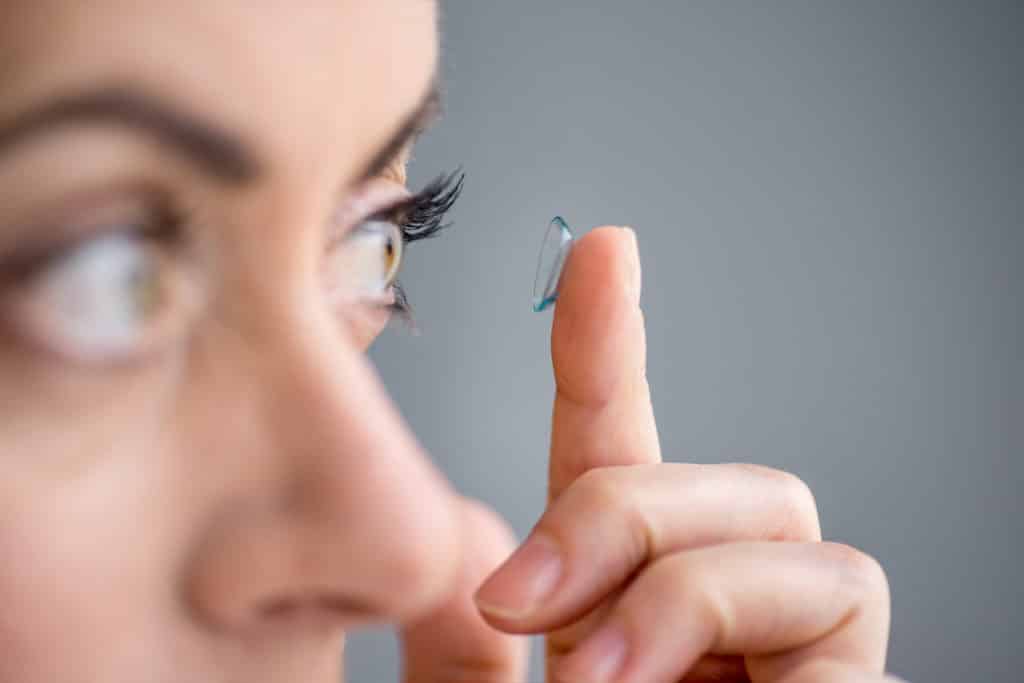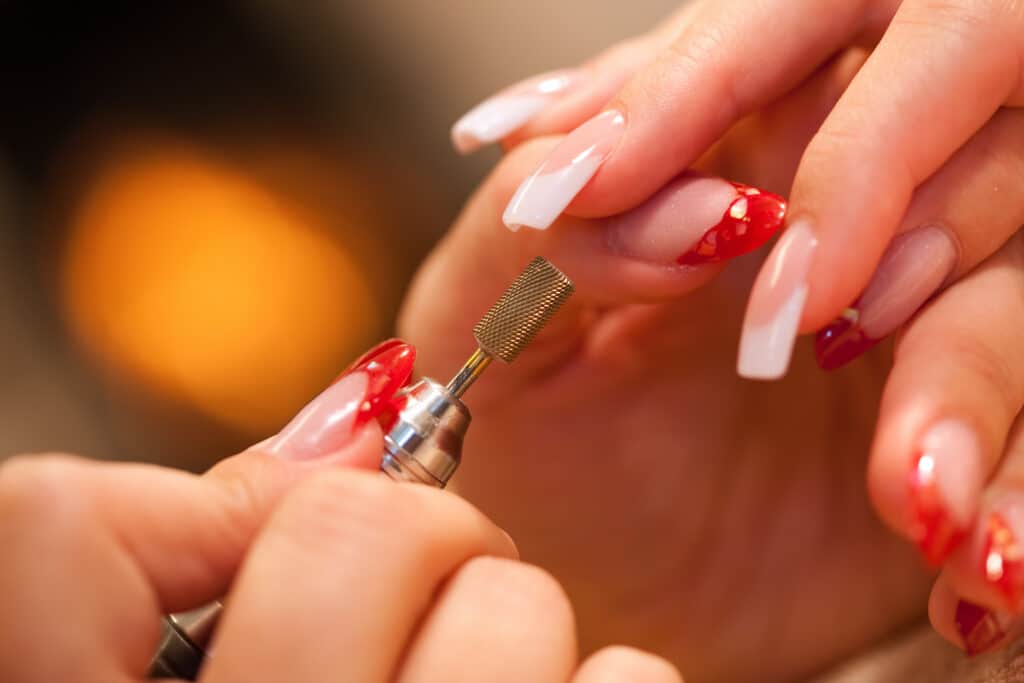
Choosing between contacts or glasses is usually up to personal preference, but if you have specific eye conditions like dry eyes, one option may be better than another. Wearing prescription glasses or contact lenses can help you see more clearly, but can they also help improve your dry eyes? Our eye care professionals at Wolcott Optical want all patients to feel comfortable in their eyewear, so choosing comfortable options for dry eyes will help improve your daily activities.
What Causes Dry Eyes?
Different situations can cause your eyes to be dry and it can change from hour to hour. Using your eyes for multiple hours a day will require more moisture to be produced by blinking. If you have poor blinking habits while reading or using screens this can be a main cause of dry eyes later.
Other factors or changes in your routine can lead to dry eyes. Taking certain medications like heart medications, birth control pills, or morphine. If you have started having symptoms of dry eyes because of medications, talk to your doctors about other options or if these symptoms are normal.
Pregnancy and hormone changes in women can also be a cause of dry eyes. These changes are temporary and sometimes eye drops can help limit irritation. Other causes of dry eyes can include:
- Dry indoor environment
- High winds or dusty conditions
- Illnesses like lupus, rheumatoid arthritis, and diabetes
- Wearing your contact lenses for too long
Pros And Cons Of Glasses
There are pros and cons of different types of optical care. Glasses may be a better option for many people who don’t want to worry about touching their eyes or not losing their contacts. Specific glasses also have built-in UV protection that will protect your eyes from sun damage and adjust automatically when you walk out into the sunlight.
Glasses don’t require you to follow specific instructions for wear. Contacts need to be stored in solution, only worn for specific hours of the day, etc. Glasses are ready to go when you need them and don’t really require any eye prep before wear.

Since you aren’t wearing the glasses directly on your eye, the risk of dry eyes is lessened. Improve your blinking patterns and avoid eye strain while wearing glasses.
Glasses also have their cons and problems too. The frames and lenses are prone to breaking which means that you will need to replace them as soon as possible if you want to be able to see clearly.
All lenses will need to be cleaned and smudges are common. Cleaning your lenses will help prevent eye strain or distractions during your day.
Pros And Cons Of Contacts
Wearing contacts is more natural for some patients and it causes less eye strain than glasses. They definitely don’t require bulky frames or change your appearance. Contact wearers also comment on how wearing contact lenses improves their peripheral vision.
Another unique benefit of contacts is the ability to change your eye color. Colored contacts can help you see clearly while altering your iris color easily. Glasses don’t have this creative benefit for those who want to have a little fun with their eyewear.
Glasses wearers will attest to the annoying fogging that happens during the rain or when cooking with steam. Contacts will help you avoid this problem.
The biggest con of contacts is that they can cause dry eyes for many patients. If you wear them too long, don’t blink enough, or are prone to dry eyes already, they can really irritate your eyes.
If touching your eyes is a deal breaker for you, wearing contacts is not the best option. You will need to touch your eye to put in the contact lens, take it out at night, and if any adjustments need to be made. Those who are grossed out by touching their eyes will want to stay away from contact lenses. Touching your eyes too much can also lead to dry and irritated eyes.
Treatments For Dry Eyes

Oftentimes, your contacts aren’t the reason you are experiencing dry eyes. In fact, as mentioned previously, lots of different environmental factors can play a role. Common treatments such as eye drops or anti-inflammatory medication can be prescribed to those with mild symptoms.
For those with more severe symptoms or chronic dry eye, surgeries or stronger medications may be necessary. Artificial tears are similar to eye drops and can help eliminate irritation. These will not treat the underlying cause of dry eyes though.
Other treatments include:
- Punctal plugs
- Special contact lenses
- Closing tear ducts
- Light therapy
- Eyelid massage






